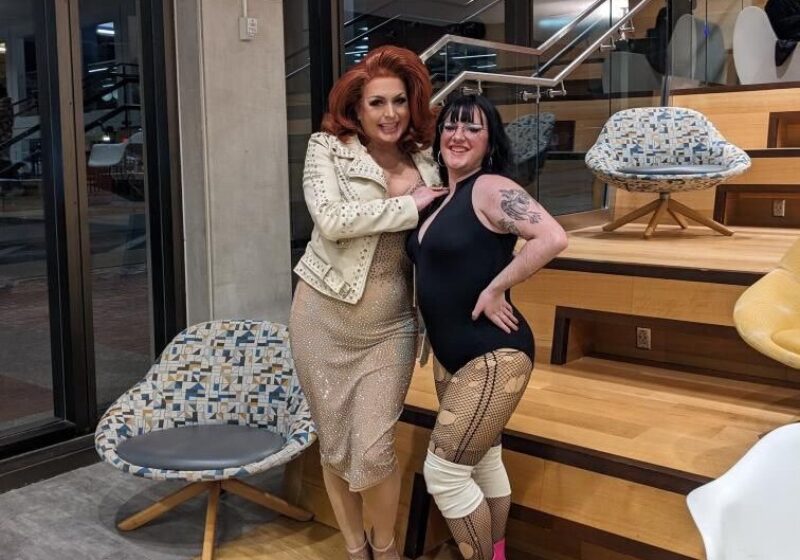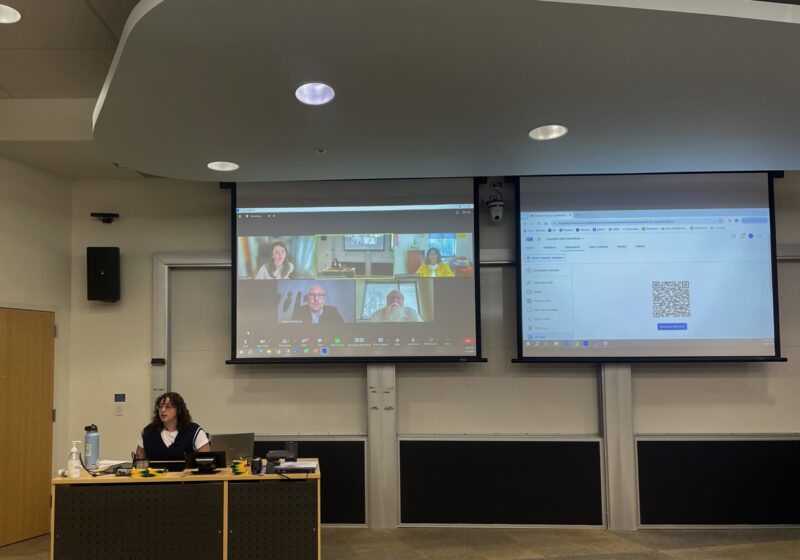UR groups sponsored special events in honor of Martin Luther King Jr. for the week of Jan. 16 to Jan. 23.
On Jan.19, Martin Luther King Jr. Day, the Campus Diversity Roundtable held a Campus Climate Conversation from 1 to 5:30 p.m. in the Simon School of Business. The event consisted of a series of presentations and discussions about the results of the 2008 Campus Climate Survey. Representatives from Financial Aid Services, Admissions, University Health Service, Residential Life, Office of Minority Student Affairs, Campus Diversity Roundtable, the engineering department, the political science department and history department were in attendance.
Dean of the College Richard Feldman and Dean of Eastman School of Music Douglas Lowry sent out the Campus Climate Survey in March 2008. The survey was a follow-up to a series of focus groups that were held in February 2008. Students had the opportunity to complete the survey for two weeks. The survey consisted of five open-ended response questions, which returned approximately 175 different concerns from respondents.
Though faculty expressed concerns as to whether or not there would be a high enough response rate, they managed a 30.4 percent response rate for campus participation. The event started with opening remarks from Feldman, who explained the purpose for conducting the survey. ‘This is just an effort to get some understanding and to have honest communication,” Feldman said.
Feldman plans on conducting the survey every two years. The two-year period will allow surveyors to make adjustments to the questions and options. By the next survey, in 2010, Feldman wants to pay specific attention to trends or changes in data.
Feldman’s opening was followed by a Powerpoint presentation by Assistant Dean for Diversity Initiatives Beth Olivares. The presentation provided statistics and demographics of survey participants. Some of the more distinct statistics were that 31.7 percent of black Americans felt they had to speak on behalf of their race, while 0.9 percent of white Americans felt the same way. Olivares’s analysis was that students’ perception of diversity depended on their background.
Toward the end of the survey, Olivares shared some of the more pressing issues from the survey responses. ‘Some of the major concerns included affirmative action, self-segregation, lack of diverse faculty and inappropriate humor toward women in the engineering department,” Olivares said.
The presentation ended with several anonymous quotes from survey respondents, whose identities were kept confidential.
Olivares then introduced Dean of Admissions and Financial Aid Jonathan Burdick. Burdick addressed what he believed to be misconceptions about affirmative action. The results from the survey revealed that 76.5 percent of white-American UR students believed they did not receive special consideration in the admissions process, while 21.3 percent of black-American students believed that they did not. However, Burdick argued otherwise.
‘The truth is 100 percent of students got some sort of special consideration,” Burdick said. ‘Not one student was chosen objectively. There is nobody here that didn’t pass that admissions standard or that’s programmed to fail.”
Burdick explained that he’s ultimately interested in students who can contribute to the campus community, benefit from attending the University and deserve admittance.
Burdick also addressed any questions about racial quotas. Though there are no racial quotas, which is in fact illegal, Burdick argued that he’s interested in accepting different groups of students from different backgrounds.
For the remainder of the event, students and faculty were allowed to break up into subgroups and engage in conversation. The group topics included harassment, classroom interactions, admissions and the current state of diversity on the River campus.
One of the main issues that was raised in the diversity subgroup was integration and segregation. Burdick argued that it is nearly impossible to determine which students are willing to integrate or segregate through the admissions process. However, Olivares commented that athletics, the Pride Network, Alpha Delta Phi Fraternity, SALSA and the Minority Student Affairs Board have all proven to have positive impacts on diversity on campus.
The event ended with closing remarks from the deans. Jessica Guzman, minority student affair academic coordinator, was also thanked for her involvement in conducting the focus groups.
Senior Miriam Mull, a representative of the Pride Network in the Campus Diversity Roundtable reflected on the event.
‘It was heartening to see the students that showed up with their concerns,” Mull said. ‘It showed that they cared. But there could’ve been more involvement. I wish we had more institutional organizations involved in dialogue. We need those players here too.”
Nathaniel is a member of the Class of 2011.






